 Petzlover
Petzlover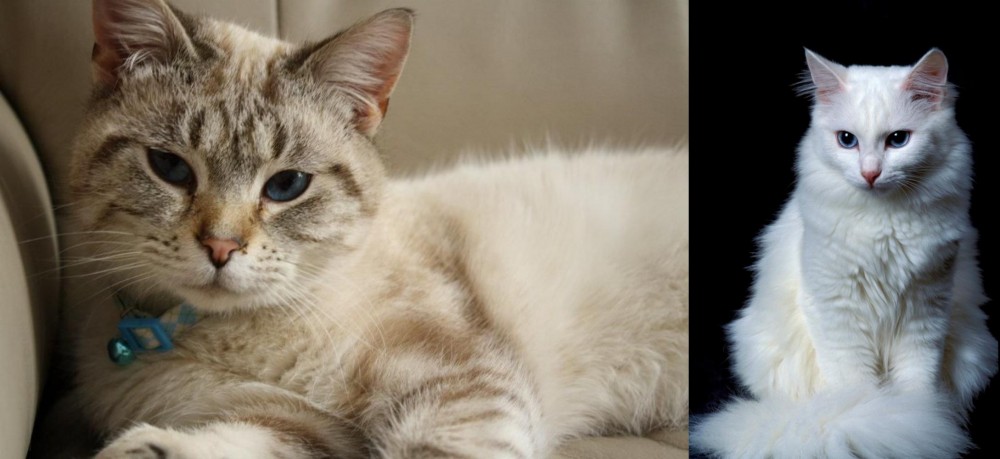 Siamese/Tabby is originated from United Kingdom but Turkish Angora is originated from Turkey. Both Siamese/Tabby and Turkish Angora are having almost same weight. Both Siamese/Tabby and Turkish Angora has almost same life span. Both Siamese/Tabby and Turkish Angora has same litter size. Siamese/Tabby requires Low Maintenance. But Turkish Angora requires Moderate Maintenance
Siamese/Tabby is originated from United Kingdom but Turkish Angora is originated from Turkey. Both Siamese/Tabby and Turkish Angora are having almost same weight. Both Siamese/Tabby and Turkish Angora has almost same life span. Both Siamese/Tabby and Turkish Angora has same litter size. Siamese/Tabby requires Low Maintenance. But Turkish Angora requires Moderate Maintenance
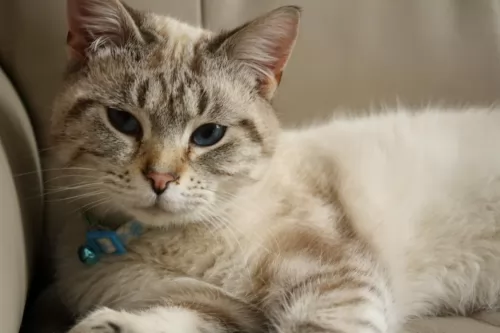 Lynx point Siamese cats are believed to also be known as Tabby point Siamese in the UK. Breeding of these cats began in about the 1940s and the first kitten born was crossed with a purebred Seal Point cat. That was the start of the seal tabby point Siamese cat.
Lynx point Siamese cats are believed to also be known as Tabby point Siamese in the UK. Breeding of these cats began in about the 1940s and the first kitten born was crossed with a purebred Seal Point cat. That was the start of the seal tabby point Siamese cat.
After the first kitten was born, many people were intrigued with it and it got plenty of attention, and breeders knew that to please cat lovers everywhere they would have to start producing these wonderful tabby Siamese points.
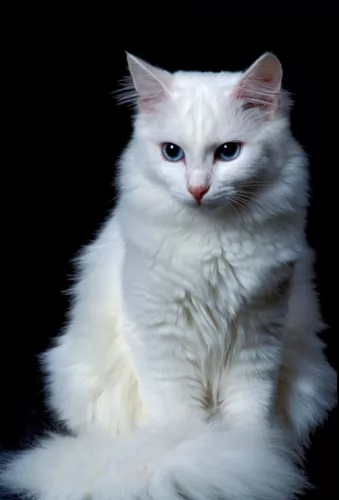 The Turkish Angora is a very old breed that naturally developed. It is thought that the breed developed in Turkey in the Ankara region formerly known as Angora.
The Turkish Angora is a very old breed that naturally developed. It is thought that the breed developed in Turkey in the Ankara region formerly known as Angora.
There are records that indicate that the Turkish Angora made an appearance in the UK as early as the 14th century already. Also, the beautiful longhaired cat was also introduced to the United States.
A breeding program was started for these cats in the early 20th century and it was then taken to Canada in 1963 and accepted as a championship breed.
While white was the only acceptable color at first, they now come in many different colors.
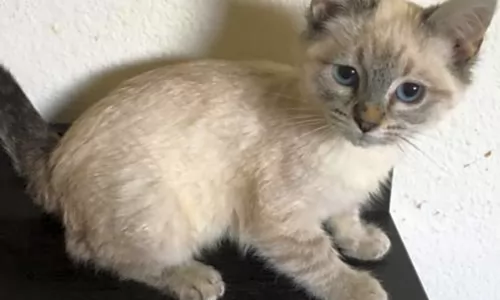 The Tabby pointed Siamese cat is medium-sized and can weigh between 3 and 5kg. He has some stripes, mostly around the legs, and the tail is also striped. These cats are available in many different colors – blue, lilac, apricot, seal, and chocolate. The ears are triangular-shaped and there is an ‘M’ shaped mark on the forehead of the cat. All these markings make the cat most distinctive.
The Tabby pointed Siamese cat is medium-sized and can weigh between 3 and 5kg. He has some stripes, mostly around the legs, and the tail is also striped. These cats are available in many different colors – blue, lilac, apricot, seal, and chocolate. The ears are triangular-shaped and there is an ‘M’ shaped mark on the forehead of the cat. All these markings make the cat most distinctive.
The Siamese and Siamese Tabby cats share many similarities in character. They are social cats, loving the interaction with their human families. They’re loyal, intelligent cats and they love to play.
They can live to be about 15 to 20 years of age and throughout this time they will provide you with love, companionship, entertainment, and joy.
In fact, they thrive so much on your company, that they can easily become lonely and run-down when left alone for too long.
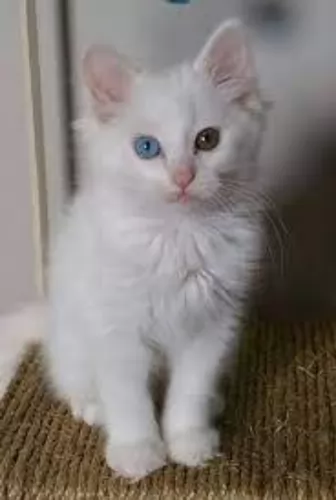 This is a medium-sized, muscular cat that can weigh between 3 and 6kg. It is a long-haired cat and the single coat has no undercoat.
This is a medium-sized, muscular cat that can weigh between 3 and 6kg. It is a long-haired cat and the single coat has no undercoat.
While the Turkish Angora is essentially white, its coat can come in a number of other colors.
The cat’s body if firm and fairly long, the legs are long with the hind legs being longer than the front legs, The tail is long and plumed, the head has large fairly pointed ears that can have tufts of fur. The eyes are large and almond-shaped and slant somewhat upwards. The color of the eyes can be blue, green, gold, amber.
This is a very active, athletic cat and he likes nothing more than to leap up on to high perches to survey his surroundings. They are intelligent, affectionate cats and they seem to gravitate towards one special human family member.
The cat is also protective of his human family. If any family member wants to stroke and pet them, they are absolutely delighted, just lapping up the attention.
They are smart enough to learn a few tricks too. They aren’t vocal cats but are sweet and quiet as well as being affectionate, making them perfect companions.
They don’t do well with changes, and a sudden change in his lifestyle can be upsetting for him.
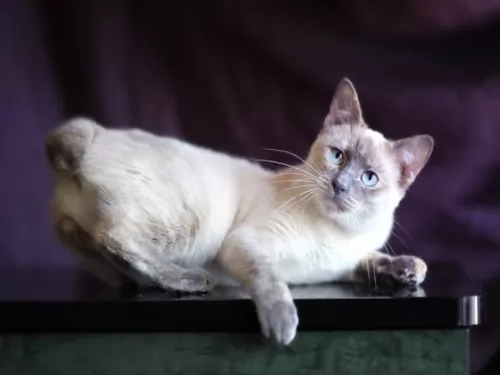 These cats are people-loving cats – they just crave the companionship of their human family although they’re not particularly fond of strangers.
These cats are people-loving cats – they just crave the companionship of their human family although they’re not particularly fond of strangers.
They make wonderful pets as they actually want to be involved in everything that theur human owners are busy with. They truly are companionable.
They’re intelligent and playful and he will even love to go on a walk with you but then it is best to have him on a leash. Bring one of these awesome cats into your home and you’re guaranteed to have a friend for life.
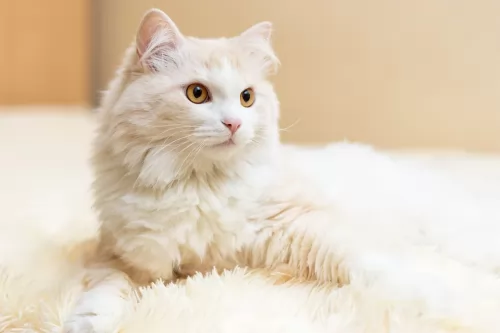 Beautiful to look at, this cat has got all the characteristics that make him a wonderful pet. He is playful well into adulthood and will love an assortment of stimulating toys to be amused by.
Beautiful to look at, this cat has got all the characteristics that make him a wonderful pet. He is playful well into adulthood and will love an assortment of stimulating toys to be amused by.
He is a sociable breed and doesn’t enjoy being left alone for hours. It would be far better to have another feline friend to keep him company.
Active and entertaining, you’ll be amused by your Turkish Angora and be so glad that you made the decision to bring such a charming creature into your home and heart.
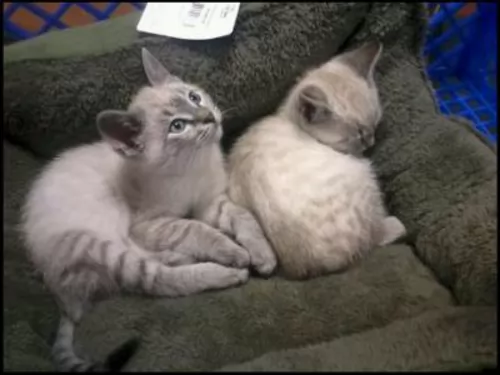 When you look at your cat, you want to see that his eyes are bright and clear, his fur is shiny, he is of a good weight and that he is energetic and content. Not looking like this could indicate health problems for your feline friend. He will need to get to the vet for his vaccines and the vet will check him over to so as to make sure he is in tip-top health.
When you look at your cat, you want to see that his eyes are bright and clear, his fur is shiny, he is of a good weight and that he is energetic and content. Not looking like this could indicate health problems for your feline friend. He will need to get to the vet for his vaccines and the vet will check him over to so as to make sure he is in tip-top health.
Make sure to check him over for parasites and these can cause diarrhea as can other issues such as bacteria, viruses, and the wrong food.
Frequent vomiting is also not normal as well as straining to urinate. These are all instances when you want to get your pet to the vet as soon as possible.
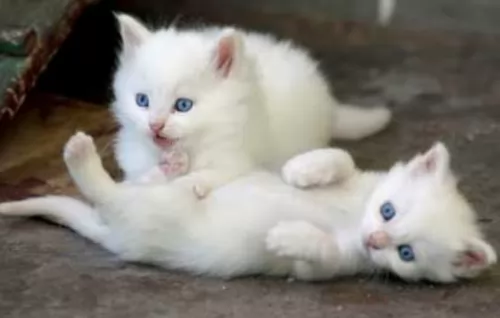 Turkish Angoras are generally healthy, but white cats with blue eyes can be prone to deafness. It is the W gene that is responsible for the white coat and blue eyes. Unfortunately, the presence of a blue eye can indicate deafness in the cat. But there are these cats that have 2 blue eyes and they have normal hearing.
Turkish Angoras are generally healthy, but white cats with blue eyes can be prone to deafness. It is the W gene that is responsible for the white coat and blue eyes. Unfortunately, the presence of a blue eye can indicate deafness in the cat. But there are these cats that have 2 blue eyes and they have normal hearing.
Another problem that has been seen in this beautiful cat breed is Ataxia which is a deadly neuromuscular disorder.
The most common sign of ataxia is an abnormal way of walking and the cat is actually unsteady on his feet. Sometimes the feet can even drag on the ground. Thankfully, screening has reduced the incidence of the disease.
Also, watch out for hypertrophic cardiomyopathy, a kind of heart disease that causes the heart muscle to enlarge.
Just remember that with a cat, diet can also play a huge role in the health of a cat. Your furry friend needs the right meaty foods with the right balance of nutrients to remain healthy and strong.
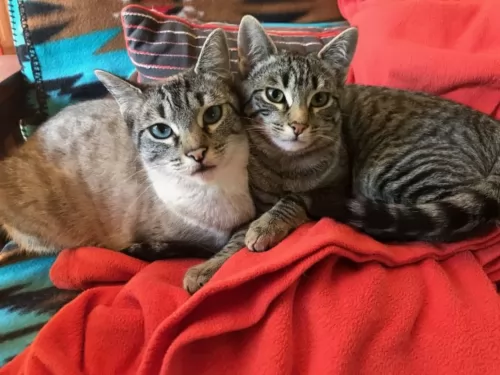 Before you commit to bringing a Siamese/Tabby into your home you must have everything ready for him.
Before you commit to bringing a Siamese/Tabby into your home you must have everything ready for him.
He will need food and water bowls, commercial cat food, grooming brush, a soft warm bed, collar and tag, litter box, a carrying container to get him to the vet safely, climbing tree, and scratching post.
The fine, silky coat doesn’t shed much and can easily be maintained with a weekly brush.
You will need to trim your cat’s paws. Trimming the claws can be difficult with a squirming cat and you can easily hurt him because of that. Rather get him to the vet who will do it for you.
Make sure to feed your Siamese/Tabby the very best cat food there is as poor quality food can contribute to poor health.
A cat is a carnivore and you therefore have to ensure that his food is made up essentially of meat. The commercial cat foods of today are formulated as dry, semi-moist, and canned and they offer a wonderfully convenient way for you to feed your cat. When you choose the best ones, they are palatable and digestible for your cat.
You just have to remember that your cat’s nutritional requirements change with his different stages of life. A kitten can’t possibly eat the same food as an adult cat. The nutritional claim on the cat food label will be a guide for you as to what your cat should be eating. Always ensure a constant supply of fresh, cool water.
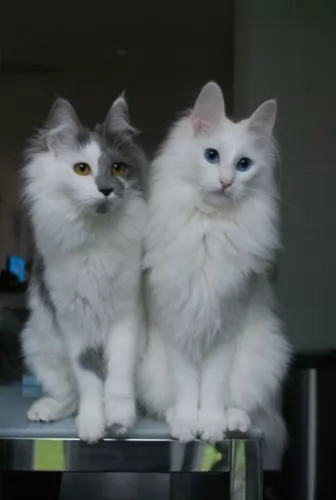 The Turkish Angora has a single coat and the lack of an undercoat makes it easy to brush him and keep the coat soft and silky. Also, the coat is only fully developed when the cat is about 2 years old.
The Turkish Angora has a single coat and the lack of an undercoat makes it easy to brush him and keep the coat soft and silky. Also, the coat is only fully developed when the cat is about 2 years old.
Check the inside of the ears. You may not want to clean them out yourself as you have to be very careful not to damage the ears. The vet and cat groomers can help you with this.
Keep your Turkish Angora’s litter box spotlessly clean. Cats are very particular about the cleanliness of their litter box and the feces will need to be removed every single day.